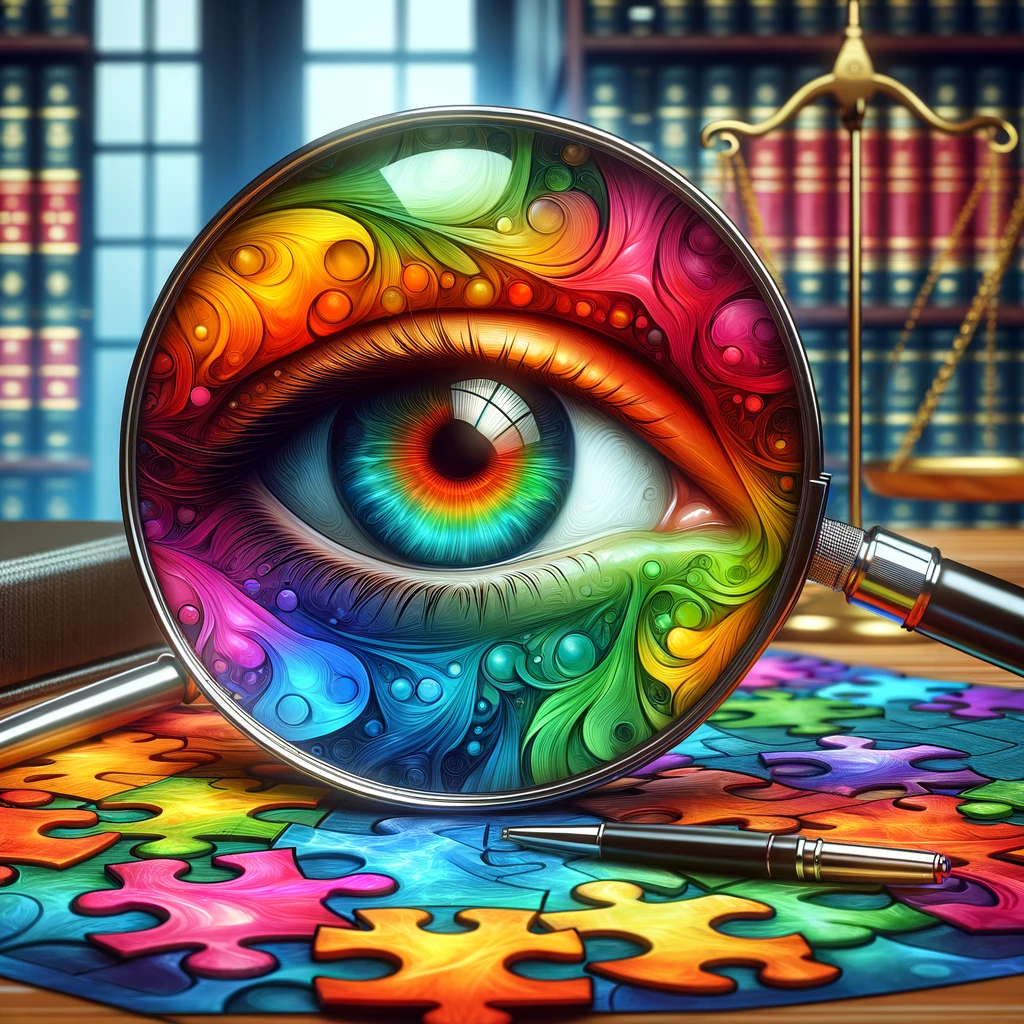At The Law Office of Joel Chorny we recognize the pivotal role that eyewitness testimony plays in criminal proceedings. It serves as a fundamental aspect of the legal process, often regarded as the cornerstone of evidence. However, beneath its seemingly firm exterior lies a landscape filled with complexities that can significantly impact the outcome of cases, potentially leading to wrongful convictions.
There has been meticulous research examining the various factors that can influence the accuracy (or lack thereof) of eyewitness memory and identification. From the profound impact of stress during critical moments to the influence of race on perception, each element can cast its shadow upon the reliability of recollections [1][2][3]. Moreover, memory itself is not infallible; it is a reconstructive process, susceptible to suggestion and post-event information [1][2][4]. Put plainly, memory is not like a video recording. Although movies and television often portray the act of remembering as playing back a recording, it is far more complex than that. Memories are compilations of experiences, preconceptions, and mental tricks to fill in gaps.
Tragically, there have been many instances where flawed eyewitness testimony has led to wrongful convictions. Take, for example, the case of Ronald Cotton, where an initial misidentification spiraled into a series of errors, ultimately resulting in an unjust outcome, his wrongful conviction for rape [4]. Confirmation bias and the perceived credibility of eyewitnesses can sway juries, leading to miscarriages of justice [1][4][5].
However, amidst these challenges, there is reason for hope. The latest research advocates for reforms aimed at fortifying the reliability of eyewitness evidence [1][4][5]. Techniques such as sequential lineups, where suspects are presented one at a time, offer promise in reducing the risk of misidentification [1][5]. Additionally, expert testimony grounded in psychological understanding can help shed light on the limitations of eyewitness testimony and contribute to fairer legal outcomes [1][4].
FAQ: Understanding Eyewitness Testimony in Criminal Cases
- What is eyewitness testimony, and why is it important in criminal cases?
Eyewitness testimony refers to a witness’s firsthand account of an event they observed. It is crucial in criminal cases as it can provide direct evidence of the alleged offense and help establish the guilt or innocence of the accused. - How reliable is eyewitness testimony?
While eyewitness testimony can be compelling, it is not always reliable. Research has shown that factors such as stress, memory distortion, and suggestive questioning can affect the accuracy of eyewitness accounts. - What are some common factors that can influence the accuracy of eyewitness testimony?
Factors such as the level of stress experienced during the event, the presence of weapons, the race of the perpetrator and witness, and the suggestibility of identification procedures like lineups can all impact the reliability of eyewitness testimony. - Can eyewitness testimony lead to wrongful convictions?
Yes, there have been numerous cases where flawed eyewitness testimony has led to wrongful convictions. These miscarriages of justice often result from factors such as misidentification, confirmation bias, and the perceived credibility of eyewitnesses. - What reforms are being advocated to improve the reliability of eyewitness evidence?
Reforms such as sequential lineups, where suspects are presented one at a time, and expert testimony grounded in psychological understanding are being advocated to enhance the reliability of eyewitness evidence and reduce the risk of misidentification. - How can legal professionals challenge unreliable eyewitness testimony in court?
Legal professionals can challenge unreliable eyewitness testimony by presenting expert testimony, conducting thorough cross-examinations, and introducing evidence that undermines the credibility of the eyewitness account. - How can I ensure that my rights are protected if I am involved in a case where eyewitness testimony is a key factor?
If you are involved in a case where eyewitness testimony is a key factor, it is essential to seek experienced legal representation. A knowledgeable attorney can advocate for your rights, challenge unreliable testimony, and work to ensure a fair legal process.
At The Law Office of Joel Chorny we are committed to ensuring that our clients receive fair and just treatment under the law. By staying abreast of the latest research and legal developments, we strive to provide effective representation that upholds the principles of truth and fairness. If you or a loved one is facing legal challenges, we encourage you to schedule a consultation. Together, we can navigate the complexities of the legal system and work towards a positive resolution.

